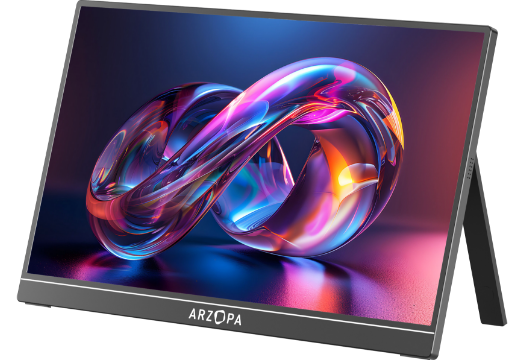In the age of digital photography, color fidelity has emerged as a crucial aspect of visual display technology. Particularly in digital picture frames, accurate color reproduction ensures that your cherished memories and artworks are displayed with the utmost realism and integrity. This article delves into the concept of color fidelity, its significance, and the technological advancements that enhance it, guiding you towards choosing the perfect electronic picture frame.
What is Color Fidelity?
Color fidelity refers to the accuracy with which a display reproduces colors as intended by the original source. High color fidelity means the colors you see on the screen are true to the original image, without any noticeable deviations.
Importance of Accurate Color Reproduction in Displays
Accurate color reproduction is vital for various reasons. It ensures that the images displayed are as lifelike as possible, maintaining the integrity of photographs and artwork. This is particularly important for professionals like photographers and artists who rely on precise color representation to showcase their work accurately.
How Color Fidelity is Measured
Color fidelity is often measured using metrics such as the Color Rendering Index (CRI) and Delta E. CRI measures how accurately a light source reveals the colors of various objects compared to a natural light source. Delta E quantifies the difference between two colors as perceived by the human eye. A lower Delta E indicates better color accuracy.
The Role of Color Fidelity in Electronic Picture Frames
Enhancing Realism
How do Accurate Colors Contribute to Lifelike Picture?
High color fidelity in digital picture frames results in images that appear more realistic. Accurate colors bring out the depth and richness of photographs, making them more engaging and true to life.
Comparison of High Fidelity vs. Low Fidelity Frames
High fidelity frames, with their superior color accuracy, offer a significantly better viewing experience compared to low fidelity frames. The latter often suffer from color distortions that can make images look unnatural and less appealing.
Preserving Photo Integrity
The Impact of Color Accuracy on the Preservation of Original Photo Quality
For photographers and artists, maintaining the original quality of their work is paramount. High color fidelity ensures that the nuances and details of their photos are preserved, providing a faithful representation of their vision.
Benefits for Photographers and Artists
Photographers and artists benefit immensely from high fidelity displays as they can showcase their work with confidence, knowing that the colors will appear as intended. This accuracy is crucial for creating a strong impression on viewers and potential clients.

Choosing the Right Electronic Picture Frame
Key Features to Consider
Resolution and Display SizeWhen selecting an electronic picture frame, consider the resolution and display size. Higher resolution frames offer more detailed and sharper images, while the display size should match your viewing preferences and space requirements.
Connectivity Options and Ease of UseConnectivity options like Wi-Fi, Bluetooth, and USB ports enhance the versatility of electronic picture frames. Additionally, ease of use is essential, with intuitive interfaces and user-friendly controls making the experience more enjoyable.
Technological Advancements in Color Fidelity
Modern Display Technologies
Overview of Technologies like OLED, QLED and IPSModern display technologies such as OLED, QLED, and IPS have revolutionized color accuracy. OLED displays offer deep blacks and vibrant colors, QLED enhances brightness and color range, and IPS provides consistent colors from various viewing angles.
How do These Technologies Improve Color Accuracy?Each of these technologies contributes to improved color accuracy through different mechanisms. OLED’s self-emitting pixels, QLED’s quantum dots, and IPS’s superior color consistency all work towards delivering more accurate and vivid colors.
Calibration and Software Solutions
Importance of Factory CalibrationFactory calibration ensures that displays are optimized for color accuracy right out of the box. This calibration process adjusts the display settings to meet industry standards, providing users with the best possible visual experience.
Tools and Software for User CalibrationFor those seeking even greater precision, various tools and software solutions are available for user calibration. These allow users to fine-tune their displays to achieve the highest level of color fidelity.

Conclusion
Choosing an electronic picture frame with high color fidelity ensures that your photos and artworks are displayed with the utmost accuracy and vibrancy. By understanding the importance of color fidelity, the advancements in display technologies, and the key features to consider, you can make an informed decision that enhances your visual experience and preserves the integrity of your cherished memories.
We hope this comprehensive guide has given you some insights into color fidelity. If you have any further questions or would like to share your experiences about it, please leave a comment below. Don't forget to share this article with your friends and colleagues who may benefit from the information. Happy browsing!





![What Should I Gift My Mother on Mother's Day? [Arzopa's Fear Picks]](http://www.arzopa.com/cdn/shop/articles/D10-fear-picks_0cb06232-cb50-43ce-9440-e353c12ee5c4.webp?v=1744184148&width=1)






